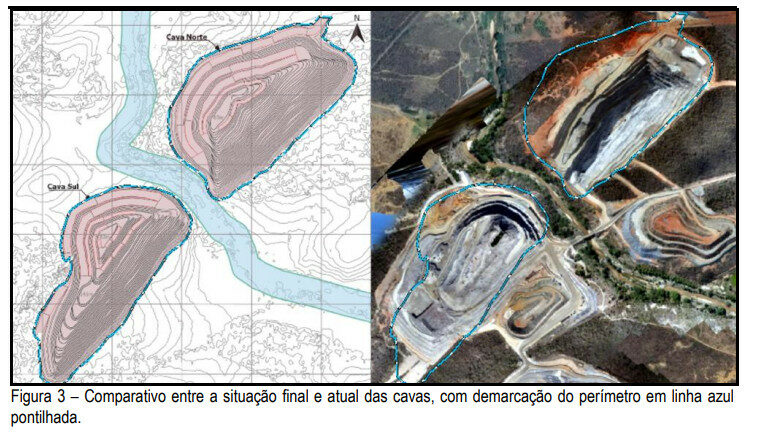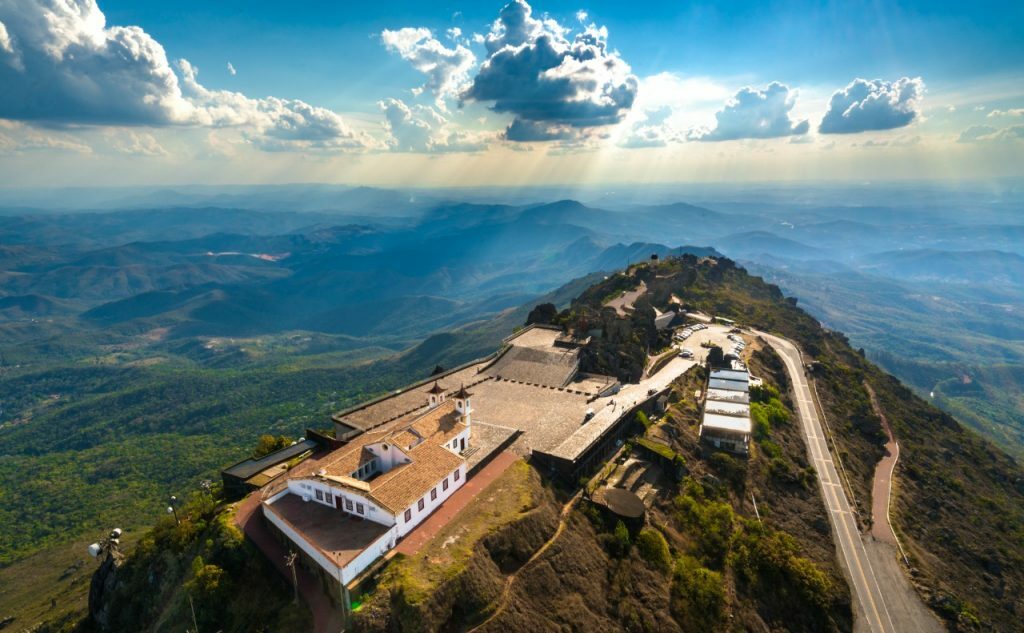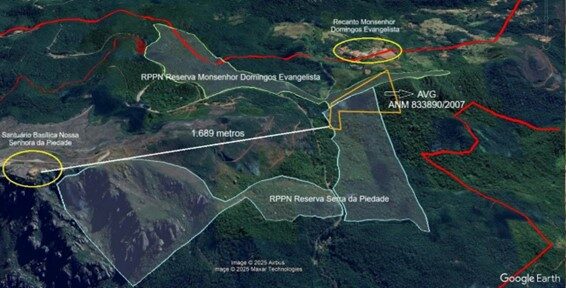The Renova Foundation can no longer exist because it represents the interests of the mining companies Vale, BHP and Samarco and are unable to independently carry out actions to repair the biggest environmental disaster in the history of Brazil, the rupture of the Mariana dam.
For this reason, Minas Gerais Public Prosecutor’s Office (MPMG) has just filed a public civil action requesting the extinction of the Renova Foundation, the appointment of an intervening board to exercise the function of a curatorial council with a institutional transition design and also the conviction for moral damages in the amount of R$ 10 billion (less than US$ 2 billion) for Vale, BHP and Samarco.
The current model of the Renova Foundation, which had its accounts rejected for the fourth time by the MPMG , has several unlawfulness in the management of the Foundation and the direct interference of the mining companies.
“It is as if the accused in the criminal and collective lawsuits were allowed to decide and manage the fundamental rights and guarantees of their own victims ”, says the action.
According to the MPMG, the illegality of the Renova Foundation is evident and its maintenance is impossible, since “it is not reasonable, given the fundamental rights, human rights, human dignity, the environment and the due legal process” that Renova continue to be responsible for repairing Mariana’s disaster.
This request, which should be analyzed by the state court of Minas Gerais, interferes with the entire model closed in previous agreements that defined the programs executed and that proved insufficient in view of the gravity and complexity of the case, which completed 5 years last November .
Extinction is a consequence of years of irregularities
Renova’s extinction is the consequence of a series of irregularities and investigations that I have denounced at the Observatory since the Foundation was created in 2016.
There is a suspicion that Renova is being used in fiscal maneuvers by Vale, Samarco and BHP to reimburse part of the billions spent to date. In 2020, Renova also decided to cut financial aid to seven thousand people in Minas Gerais and Espírito Santo , was denounced for a “possible mass violation of human rights” and forced by the justice to retreat.
The advertisements made by Renova in some of the main newspapers and vehicles in the country at a cost of R$ 17 million were considered misleading and irregular by the Federal Prosecutor’s Office and public defenders. Renova was used to pressure mayors in the Rio Doce basin to give up lawsuits in Brazil and abroad.
Tens of thousands of people have not even been recognized as affected by the Mariana dam rupture to date and the districts destroyed by the mud have not yet been rebuilt. Some, such as Paracatu de Baixo and Gesteira, are in the preliminary stage of studies or are awaiting projects to be approved by the courts.
Story by Agência Pública revealed an audio from a Renova lawyer threatening people affected and saying that she spoke on behalf of the judge responsible for the case, Mário de Paula Franco Júnior, of the 12th Federal Court of Justice in Belo Horizonte.
Lack of participation by those affected
A critical point in the whole story is the lack of participation by those affected, which led to a renegotiation of the original agreement made in 2016, reformed in 2018 to try to ensure that the people affected really had a voice in the process.
Did not work.
This is what the MPMG affirms in the action, pointing out that throughout these more than five years, there were several failures of the Renova Foundation’s programs pointed out within the scope of the Interfederative Committee (CIF) system, in the judicial process, in the technical reports of MPMG and works and demonstrations carried out by the affected representatives.
“The resistance of the Renova Foundation” in solving the problems “stems, to a large extent, from the lack of participation of those affected in the design, implementation and execution of remedial measures”.
Another relevant factor, continues the MPMG, is the fact that the Renova Foundation insists on disregarding technical studies prepared and / or validated within the scope of the CIF system, as well as the technical production of the experts in the socioeconomic and socio-environmental diagnosis and in the monitoring of the programs.
For prosecutors Gregório de Almeida and Valma Cunha, “it is urgent that these illicit and deviations of purpose are immediately stopped as a way to reestablish the incidence of the legal order, fundamental constitutional rights, guarantees and due process of law”.
Complex transition model
According to the action, the transition regime should ensure everything that has been negotiated so far, a complex case that involves the maintenance of the governance system, with its respective attributions, including the Interfederative Committee (CIF) and internal instances (Technical Chambers, Committees Advisory), the Local Commissions of People Affected and Technical Advisors hired, Independent External Audit, experts and specific hires dedicated to monitoring the programs through Technical-Scientific Cooperation Agreements.
The objective is to carry out the renegotiation process through an action plan and timetable to be established in common agreement by the Prosecutor’s Office, Public Defenders, Companies, the brazilian government, the State of Minas Gerais, the State of Espírito Santo, with the participation of those affected, according to the principles and clause of the TAC-Gov (reformulated agreement of 2018).
The Action Plan and the Schedule should consider two fronts of action to be worked on in the Renegotiation Process, they emphasize, one aimed at the renegotiation of the repair programs currently underway, considering respect for human rights and the participation of those affected and the other relative to the new governance aimed at conducting the Socio-Environmental and Socio-Economic Programs, “ensuring that this will happen through processes and flows that ensure impartiality, legitimacy, participation, transparency, preserving the objectives and premises established in the agreements by the parties and assumed as commitments by the companies involved in the disaster ”, they highlight.
During the transition, mining companies must ensure that no remedial measures are suspended or delayed. “It would be inconsistent to accept that the Renova Foundation’s irregularities may justify any delay or failure to repair all the damage caused by the companies involved in the disaster, especially considering that 5 years have passed and much remains to be done to guarantee full repair”.
The MPMG asks that the intervention injunction be considered for the appointment of a judicial intervening board, which will act as a curatorial council, composed of members appointed by the MPF, MPMG, MPES, the president of CIF, the state of MG and ES and the public defenders of the brazilian government, Minas Gerais and Espírito Santo.
“Results are lacking, repairs are lacking, companies are lacking goodwill: they lack empathy and humanity towards the people affected. Five years later, the two largest mining companies in the world have failed to rebuild a single district”, concludes the action.
In response to the Mining Observatory, the Renova Foundation stated that “it disagrees with the allegations made by the Minas Gerais Public Prosecutor’s Office related to the institution’s accounts and informs that it will contest in the appropriate instances the intervention request proposed in Public Civil Action” and that “it remains dedicated in the work to repair the damage caused by the rupture of the Fundão dam in Mariana (MG), the purpose Renova was created ”.
O post Brazil prosecutors request the extinction of Renova Foundation and the payment of R$ 10 billion in moral damages by Vale, BHP and Samarco apareceu primeiro em Observatório da Mineração .
Fonte
O post “Brazil prosecutors request the extinction of Renova Foundation and the payment of R$ 10 billion in moral damages by Vale, BHP and Samarco” foi publicado em 26th February 2021 e pode ser visto originalmente diretamente na fonte Observatório da Mineração




